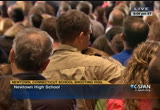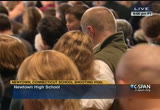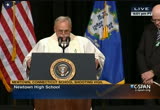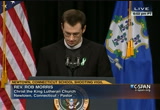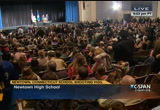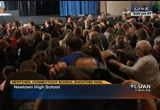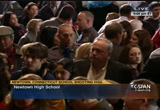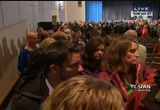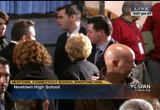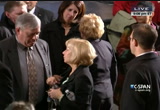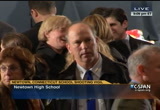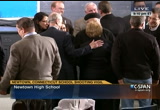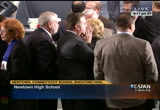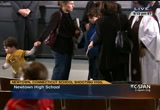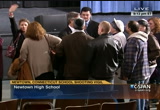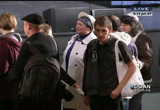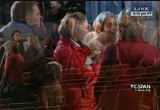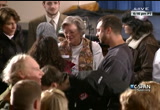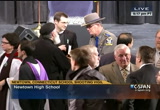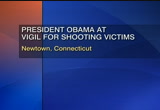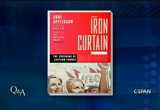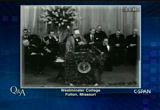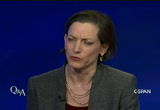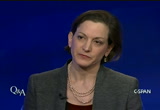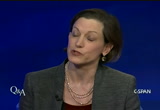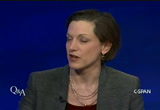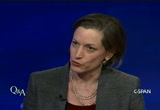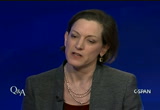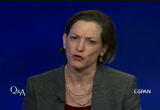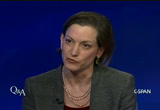tv P.M. Question Time CSPAN December 16, 2012 9:00pm-9:30pm EST
9:00 pm
praise you for men and women in his love for each other have given us children that we might guide and encourage them. we seek your wisdom as our administrators and educate tors continue to teach our children ways which will strengthen them to be productive and positive citizens of this world, to only bring good. we pray we pray this will soon be replaced with a culture of life that embraces every person with human dignity. we are brought to you tonight in our prayer, those who have been lost, those whose hearts are broken forever. we bring your 20 new stores in the heavens, 20 new state and angels.
9:01 pm
those who risked their lives every day, not counting the costs, and we bring to you those who guide, those who counsel, those who bless and embrace the confused and broken, and we bring to view ourselves are broken this, our questions, our doubts, and our anger in our hearts, and we pray for the peace, hope, and renewal of trust that can come only from a god who first conceived as in love and places and hands of compassion on our shoulders, even in these challenging times, so tonight in our community, we ask you to heal the broker innocents -- the brokenness, to replace our anger with peace and
9:02 pm
are hurt with healing. god, we thank you for this town. we thank you for its people, and we thank you for the opportunity to stand together and not fall apart. amen. now a final blessing of hope through faith in jesus christ from the words of st. john to st. paul. i heard a loud voice from the throne saying, behold the dwelling place of god is within man. he will dwell with them, and they will be his people, and gone will be with them as their god. -- god will be with them as their god. he shall wipe away every year from their eyes, and to death shall be no more. neither shall there be morning
9:03 pm
or crying -- mourning or crying or pain. he who was seated on the throne said, behold, i am making all things, and a decrease of our lord, jesus christ, the love it -- made the grace of our lord, jesus christ, the love of our god, and the holy spirit be with you all. amen. i asked you to please take your seats until i can receive confirmation the president has safely exited and now the school campus. i do not know who that confirmation is going to come from. allow me to say while we wait for that we encourage all of you on behalf of the town clergy, give to one another all the love and care and support you can,
9:04 pm
and clergy will be available for you at this time at the platform for a time of prayer according to teachings and believes, so please wait until i hear that confirmation, and comfort one another. ladies and gentlemen, we have received that confirmation hearing gave -- that confirmation. give one another the love you can. [captioning performed by national captioning institute] [captions copyright national cable satellite corp. 2012]
9:18 pm
>> some of the people gathered here still part of the service for the children killed in connecticut. good now before this began there was applause as some of the first responders entered the room. president obama said our first task is caring for our children. he questioned whether we can say we are doing enough in his speech, and the president saying in the speech he wrote himself he would use whatever power his office holds to prevent future massacres like new town. -- newtown. we will be showing the memorial
9:19 pm
service in its entirety at 12:30 eastern. ♪ >> this week pulitzer prize- winning author anne applebaum discusses her new boat -- book, "iron curtain: the crushing of eastern europe, 1944-1956." >> why do you open with a quote from churchill? >> heat. the expression -- he coined the expression iron curtain. it was such an evocative description of what happened when he gave the speech that i
9:20 pm
thought it was important to put that the beginning of the book. >> did you ever think of what he called that the iron curtain? >> there is a long story. it is a theatrical term. there was an iron curtain theaters used to use to prevent fires. churchill used it first in private. >> you know why? >> it was a favor for truman. that is where truman was from. >> let's get a slice of that speech. >> an iron curtain has descended across the continent. behind that line, like all the
9:21 pm
capitals of the ancient states of central and eastern europe -- baltimore, berlin, prague, vienna, budapest, belgrade, bucharest. all of these famous cities and the population around them lying in rubble -- lie under the soviet sphere. >> why did you want to talk about this? >> i was inspired in my first spoke -- book, and while this is in no way a sequel it represents thoughts i had. one thing i got interested in is the question why no people went along with it. what is the mentality? what are institutional pressures? why do camp guard do what they
9:22 pm
are told to do? i decided to write about this period right after world war ii, because it was a time the soviet union had reached a height, there was an apotheosis of stalinism. it was reinforced by the experience of the war. by 1945, it was a fully developed system with an economic theory and a clear ideology, and it was at this moment the red army marched into central europe and began imposing that system on the central european states, so you can see how from scratch -- what did the soviets think their system was? what did they think was important, and how did they try to carry it out? >> where did they get to right to march into eastern europe? >> they were the victors of the war. hitler had invaded germany in 1941, and they fought back
9:23 pm
against the germans, and they kept going against berlin. >> the fine stalinism. >> stalinism was developed system,-- define stalinism. >> stalinism was a developed system of control. it believed it could control everything, not only in politics and economics but social life, civic life, sports clubs and chess clubs. in the stalinist system, there were no independent institutions of any kind. no independent voices of any kind were allowed to speak. all the economy was under state control, and all of society was. there was a cultural aspect, too. the arts were under stalinist control, and there was a cold of stalin himself. his portrait hung everywhere. -- there was a cult of stalin
9:24 pm
himself. >> i grew up in a small town of indiana, and one of my streets, you talk about radio casuth. \ >> he was the hon gary and hero of an earlier time, and much later on, -- he was often gering and hero of an earlier time, -- was a hungarian hero of an earlier time. there was a radio, and they adopted the name of a previous deliberate thing hero, and in 1956 he would have to call it anti-stalinist radio. >> what was the circumstance? >> 56 is the end of the stalinist period. he died in 53, and after 53 people want to begin to reform the system. in '56, you have the revival of
9:25 pm
what i have just described, so if stalinism was an attempt to put everything under state control, 1956 was the revenge of civil society, when people began reorganizing themselves, reorganizing social life independently and spontaneously, and among other things, creating independent radio station. >> you said it took six years to do this. >> it depends on how you count. >> what i really want you to do is back up and tell me what you went through and what you were trying to find out and how you did this book. >> my inspiration was the idea i wanted to explain how totalitarianism happens. we do know the story of the cold war. we know the documents we have seen, the archives that describe the relationship between
9:26 pm
roosevelt and stalin and truman, we note the minivans from our point of view. what i wanted to do was show from the ground up, what did it feel like to be one of the people who were subjected to this system, and how do people make choices in that system, and how do they react and behavior? i started systematically. i went through archives in warsaw and berlin and budapest. i looked at government archives. i looked at secret police archives, all of which are now open, some of them easier to use than others. some give a better and worse account. in this part of the world the archives are open, and you can reach them. i looked at institutions, so i looked at the hon. film industry. how did the hon gary and film industry -- i look at been h --
9:27 pm
the hungarian film industry. how did it become a social realist film industry? it had a different background. i look at german painters. germany had a vibrant abstract art movement in the 1930's and the 1920's. they came back to berlin, thinking they would be able to paint what they wanted. many were communists and discovered actually they were not going to be allowed to. how did they react and, some of them taught themselves to paint again. i looked at some economic questions. in particular, i was interested in small shops and retailing. this was the hardest part of the economy to control, so i looked at the files of the ministry of
9:28 pm
economics in germany and poland. i look at the secret police documents because i was looking at the origin of the secret police. how was it created? who were the people? where did they come from? how were they trained? i went through all this. in addition, i used soviet documents, some of which have been published or made available in the 1990's which were not available anymore. there is a wonderful collection in warsaw in about 1991 or 1992. the polish military archive sent a researcher and a couple of machines to moscow, and they'd xerox all of the archives that had anything to do with the red army's liberation of poland in 1944 and 1945, and is an encounter with the resistance. it is all the rocks. -- all xeroxed.
9:29 pm
there is a tremendous amount of material available. in a way my problem was what not to use. i spoke to people as well. >> where do you live? >> i now lived in warsaw. >> how old are your kids? >> my kids are 15 and 12. >> where do they live? >> they live also some of the time in warsaw and sometime in london. >> what does your husband do? >> my husband is a polish foreign minister. he was not a foreign minister when i met him. he was a journalist in 1989 when i met him. he came to report on communism in eastern europe. i met him, and we drove to berlin on the november night when the wall fell and spent the evening sitting on the wall taking added with a chisel. i got married to him a year later. >> what did it mean at the
146 Views
IN COLLECTIONS
CSPAN Television Archive
Television Archive  Television Archive News Search Service
Television Archive News Search Service 
Uploaded by TV Archive on

 Live Music Archive
Live Music Archive Librivox Free Audio
Librivox Free Audio Metropolitan Museum
Metropolitan Museum Cleveland Museum of Art
Cleveland Museum of Art Internet Arcade
Internet Arcade Console Living Room
Console Living Room Books to Borrow
Books to Borrow Open Library
Open Library TV News
TV News Understanding 9/11
Understanding 9/11